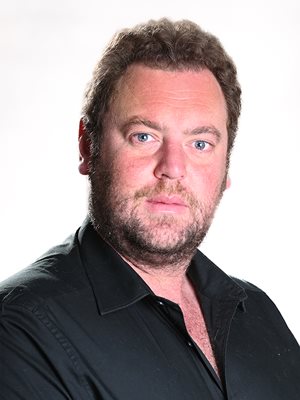
Top stories


Marketing & MediaWarner Bros. was “nice to have” but not at any price, says Netflix
Karabo Ledwaba 19 hours



Logistics & TransportMaersk reroutes sailings around Africa amid Red Sea constraints
Louise Rasmussen 12 hours

More news


















On Saturday, 7 October, southern parts of Israel suffered a surprise attack on an unprecedented scale by Palestinian military group Hamas, leaving a wake of destruction, with more than 700 dead, thousands of injuries and a host of civilians taken hostage.
Israel’s response has been swift, with targeted air strikes in Gaza and talk of a ground incursion into the disputed region abounding.
Professor André Duvenhage, political analyst at the North-West University (NWU), explains how the attack and its consequences will affect South Africa. He gives context on the escalating situation and looks at what the future for the geo-political situation in the boiling pot of the greater region holds.
“The implications for South Africa are many and far-reaching. We know that the ANC immediately gave their support to the Palestinian people and their right to attack Israel. The position of the government was a bit softer, asking for negotiations between conflicting parties – very similar to their position of non-alignment in terms of the conflict in the Ukraine. The South African context is a very complicated one. I believe that, ideologically, the ANC is closer to the Palestinian people, and to Iran and Russia in the background, than to the West, although the government will follow a non-alignment approach for economic and financial reasons. I think one very important implication is the price of crude oil, which is going to skyrocket. This may have a very negative impact on the South African economy, as it will in the rest of world. I know the Russians are cutting their production of crude oil by some 20 000 barrels, and the crisis in Israel is going to put more pressure on oil production. We know that Iran and Saudi Arabia are also playing a role, so we can expect this,” explains Prof Duvenhage.
“Israel is in a state of war, and they are going to take drastic action. I am expecting Israel to not only take on the Hamas and Hezbollah groups through air attacks, but I think there is going to be a ground invasion. Israel was not expecting the attack. They were completely unprepared and are now on the defensive, but that will not stay so for long.
Prime Minister Benjamin Netanyahu has his own internal problems, and I will not be surprised if the lack of flow of information can be attributed to internal sabotage. There may be questions, because there are huge internal political fights involving corruption cases against Netanyahu, but it is clear that Israel is united at the moment. I am expecting a long, escalating war that may rocket to the level where world actors will become involved,” says Prof Duvenhage.
“I am expecting Israel to retaliate with all its power on all levels from the sea, from the land, from the air – even from space if possible. It means the region will be very destabilised in many ways.”
According to him, one of the actors that may be activated is Iran – which has been accused from numerous corners as having helped to orchestrate the attack – as well as the USA.
“We have already seen that the Americans are repositioned close to the coast or in the vicinity to support Israel where possible. There are also other forms of support coming from the West, and from a Western perspective, this is seen on the same level as the 9/11 attacks for the Americans. We also know what type of action the Americans took after 9/11 against Al-Qaeda and with the war in Iraq and Afghanistan. I am expecting that the Israelis – with the support of the West – will follow a similar path, but then I am expecting very strong counter moves coming from the side of Iran and Lebanon.
“We are currently living in a very unstable world, especially if you look at the greater Middle East. Think about Syria and what is happening there. Think about a nuclear Iran and the Russian-Ukrainian war that is going negatively for Russia, the close connections between Russia and Iran, and then we also know that Iran is in many ways supporting both the Hezbollah and Hamas. The conflict has definitely been internationalised and I will not be surprised if the attack on Israel is a deliberate attempt to take attention and support away from the Ukraine. I do not have any precise evidence to support that, but I think that may be the case,” Prof Duvenhage concludes.